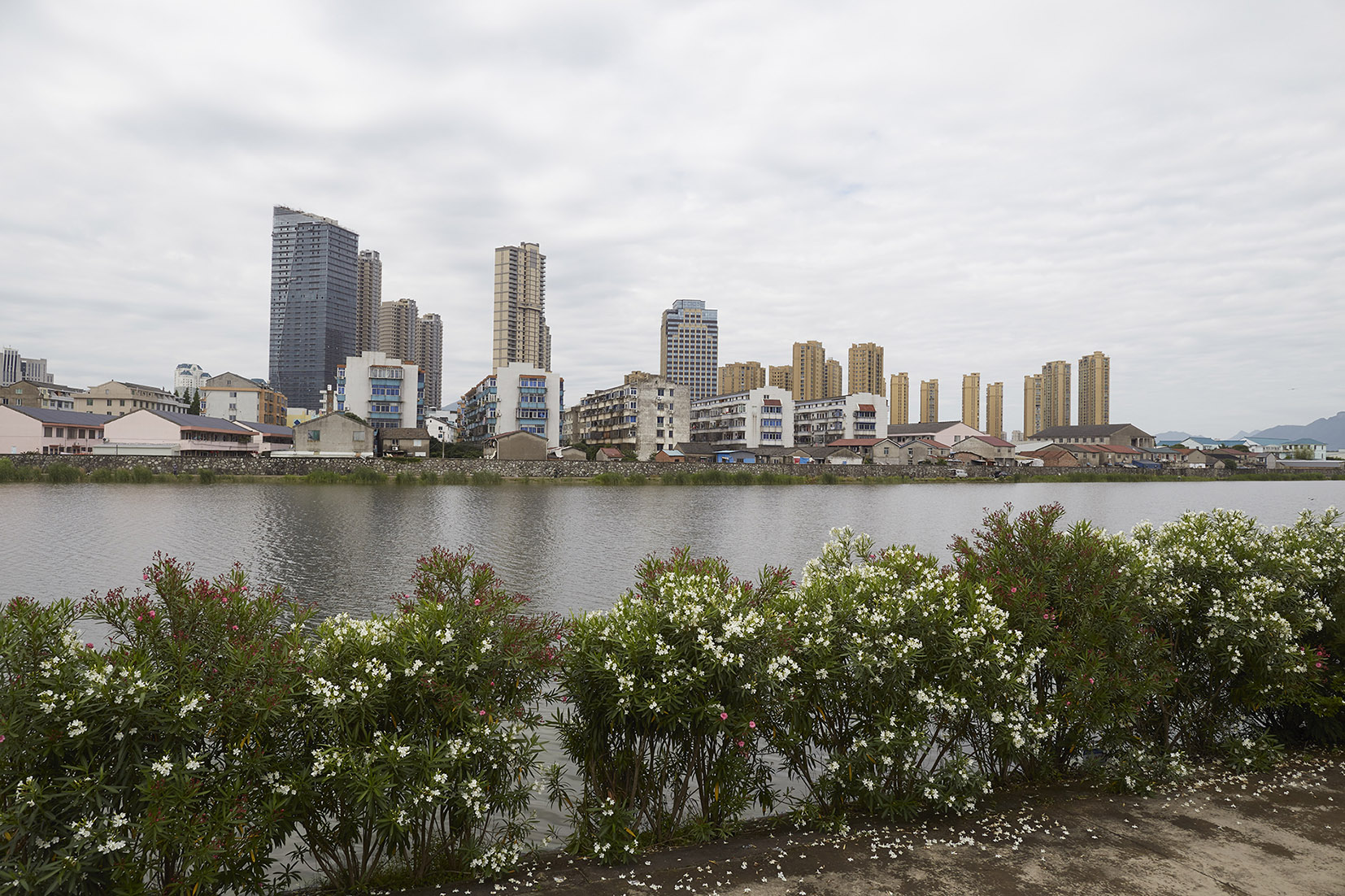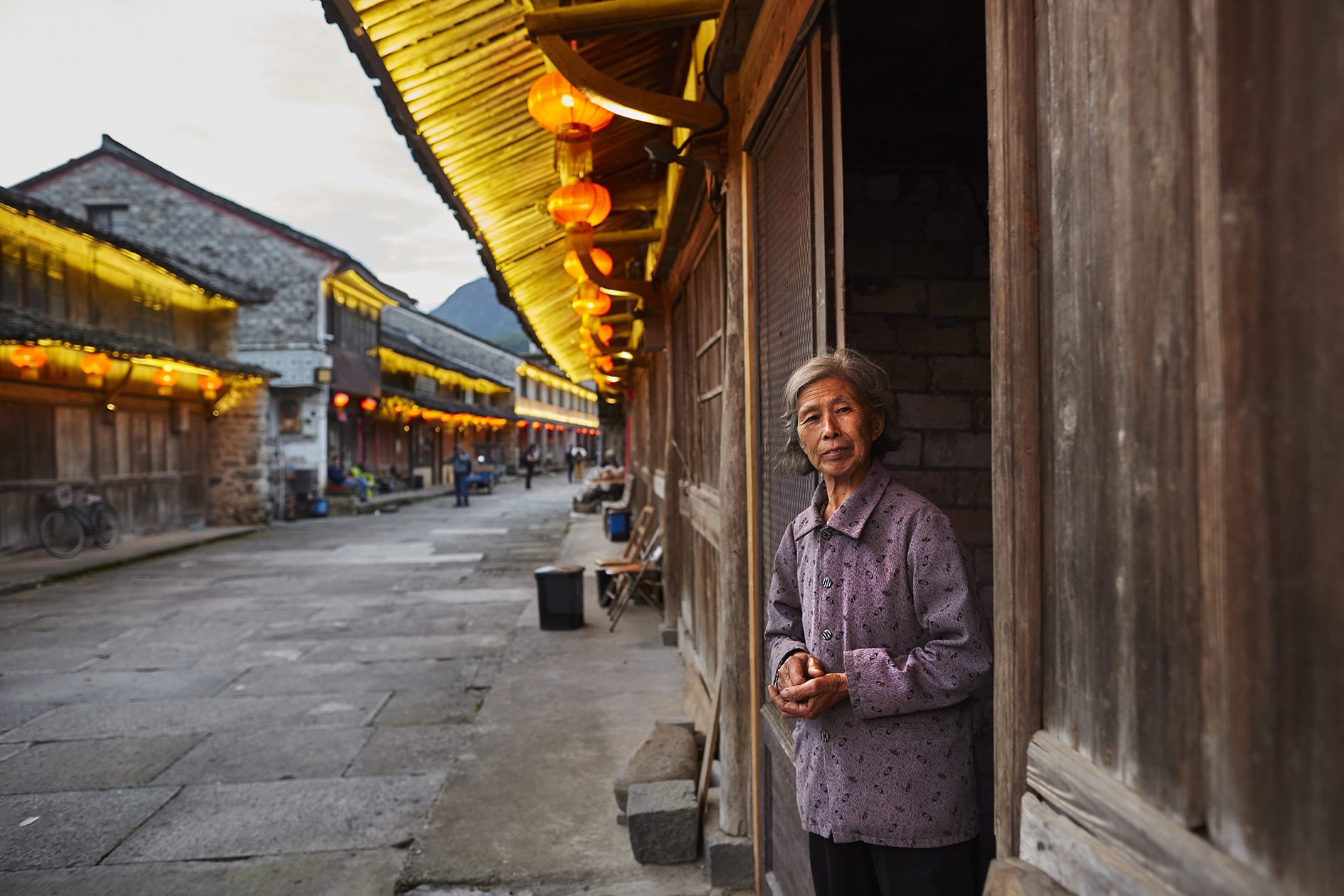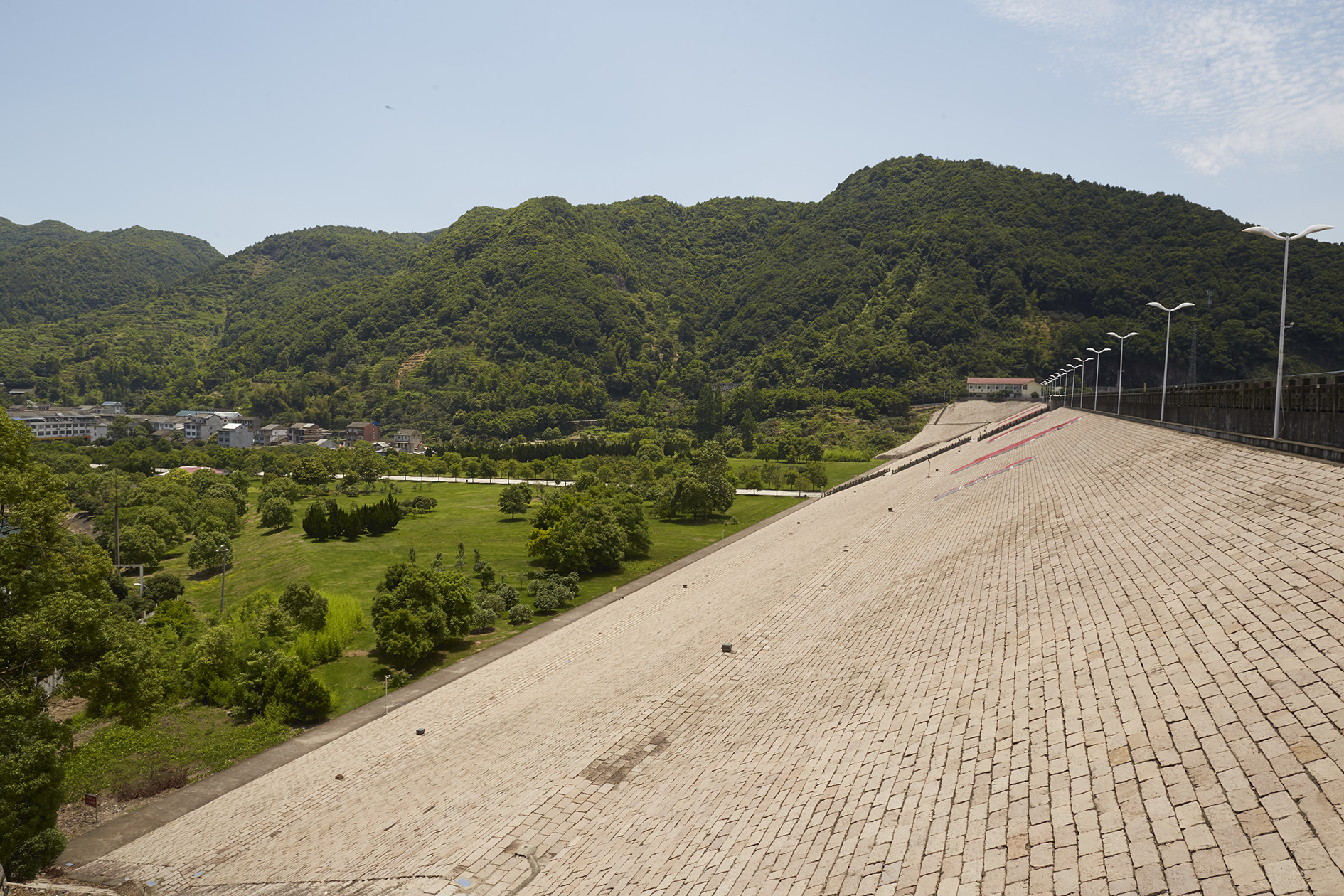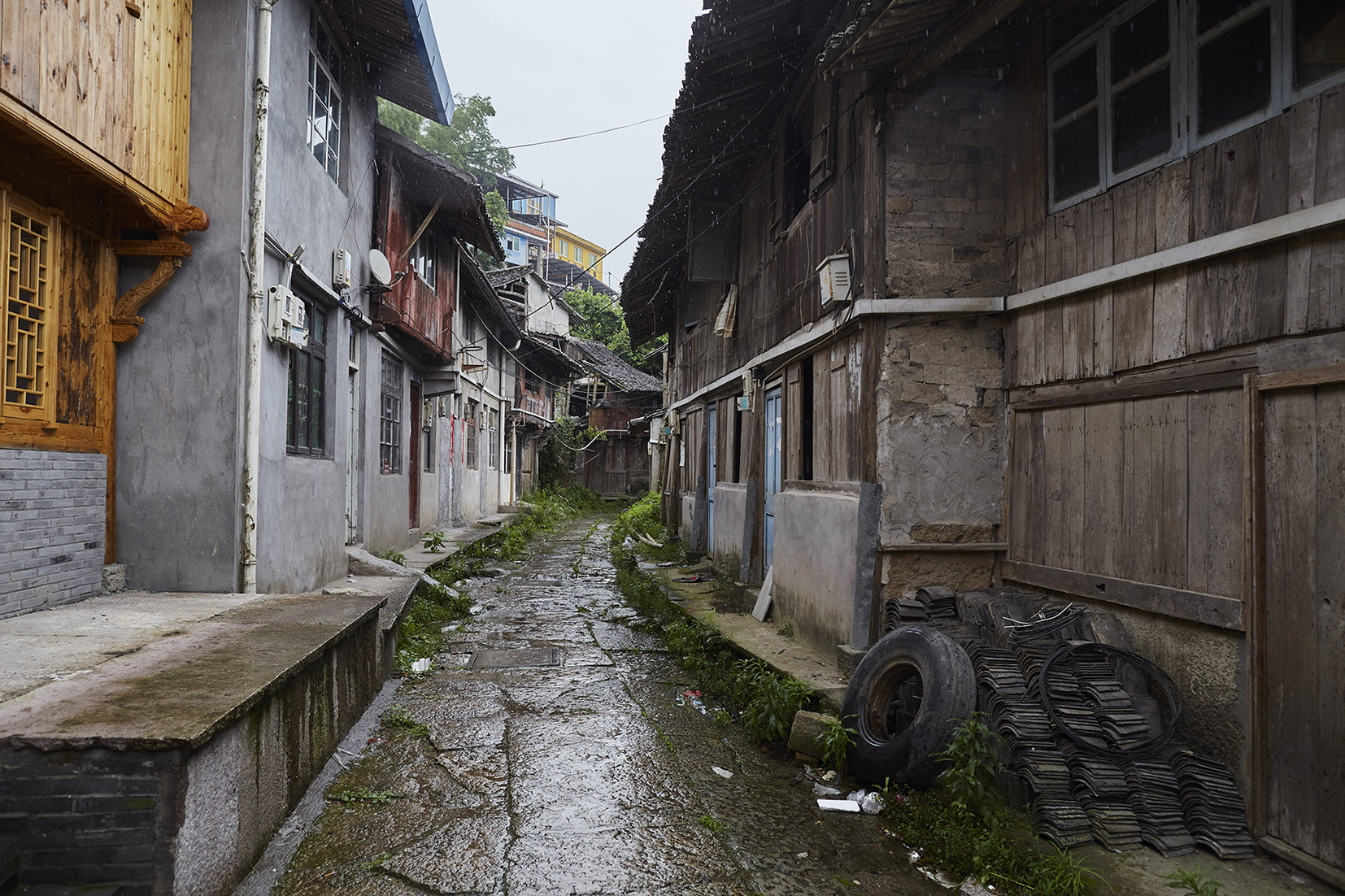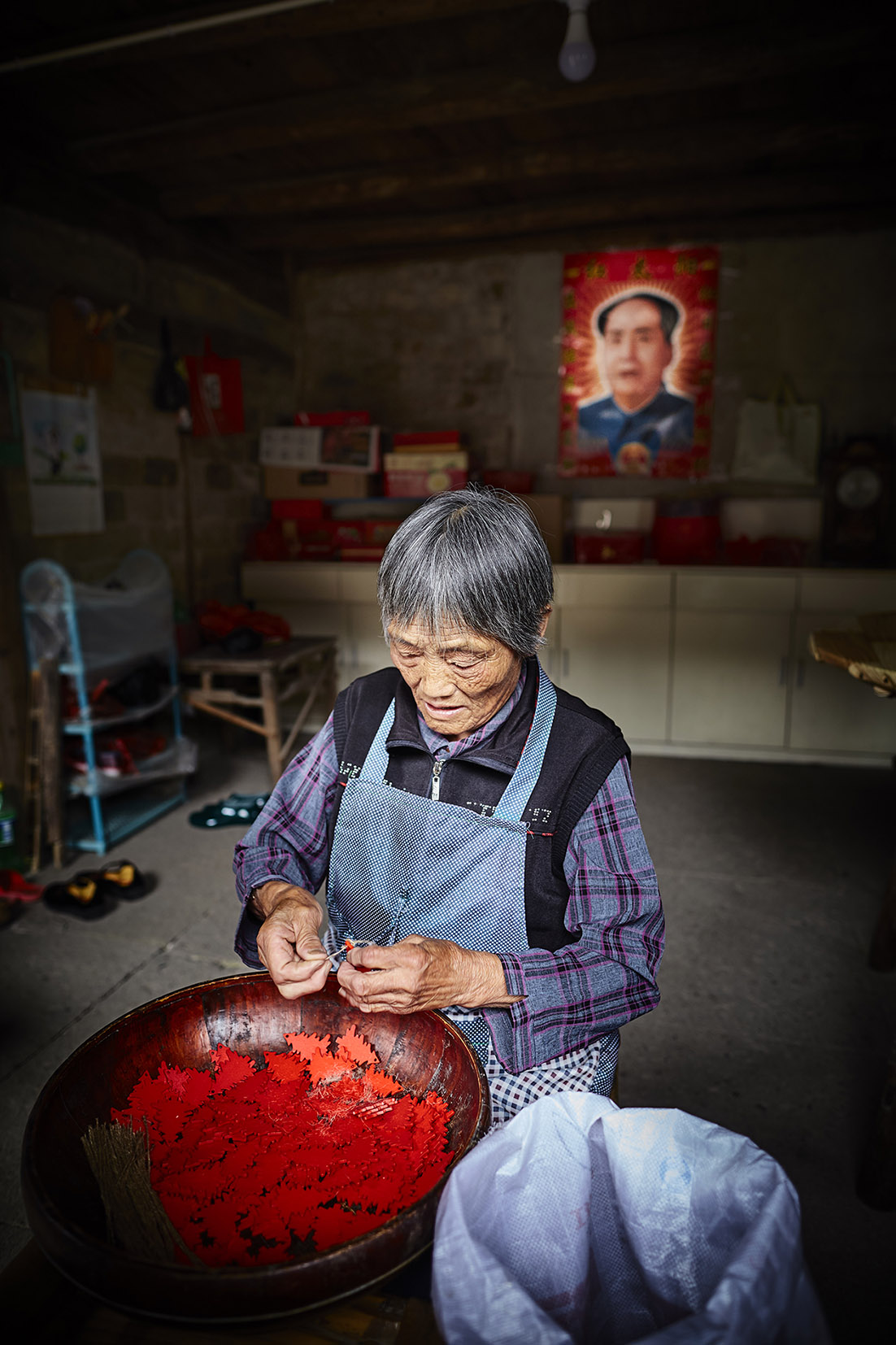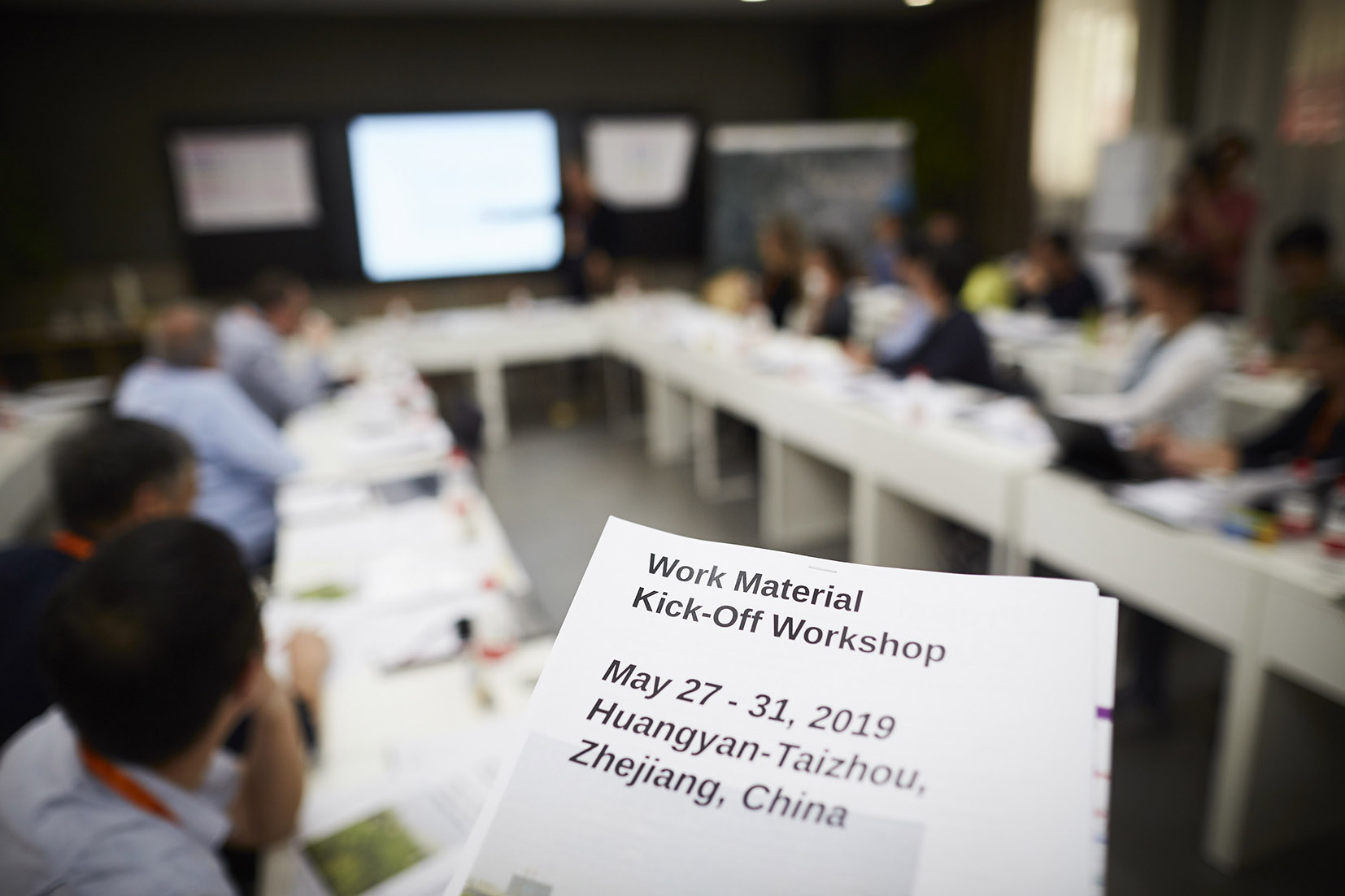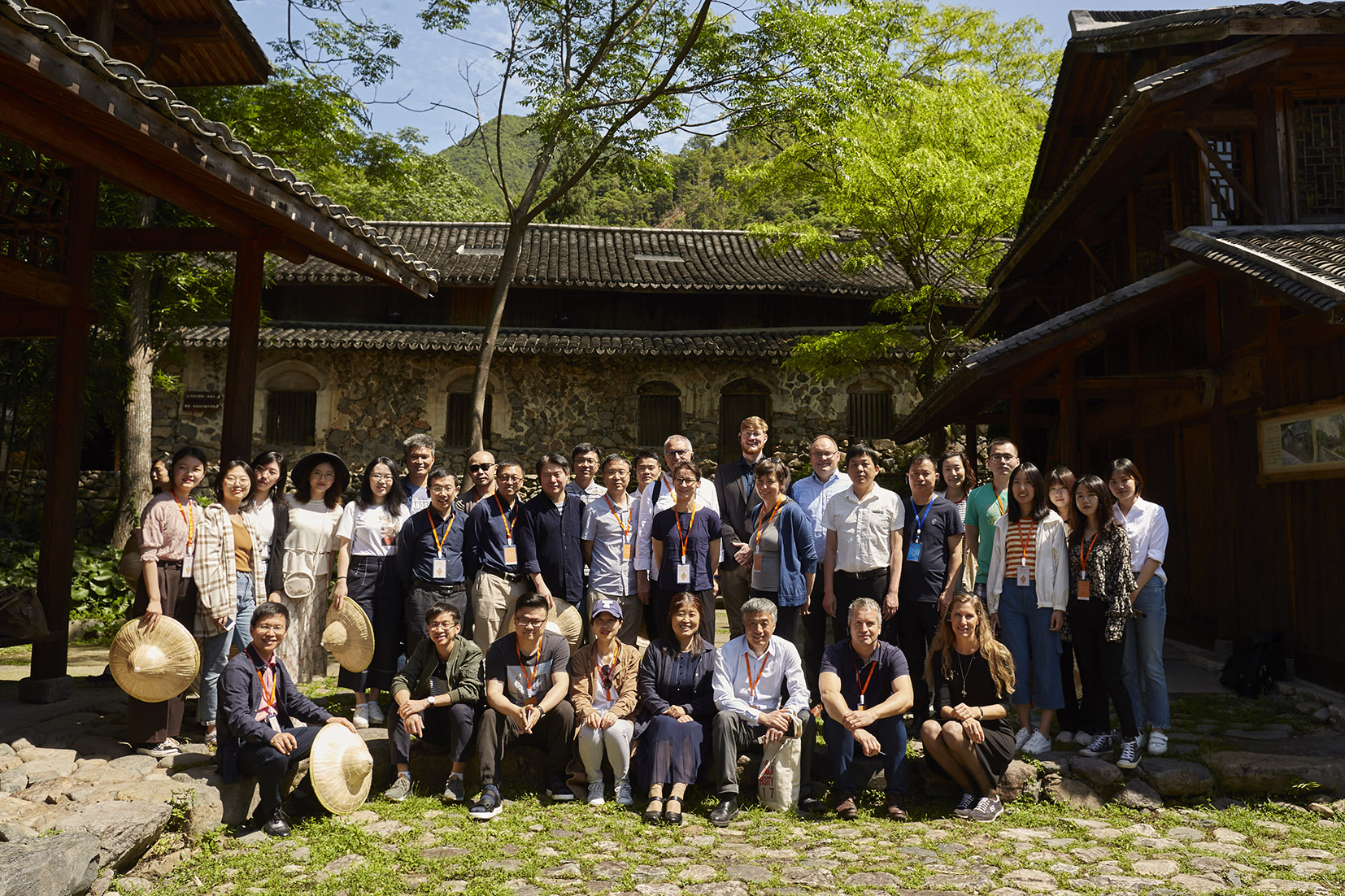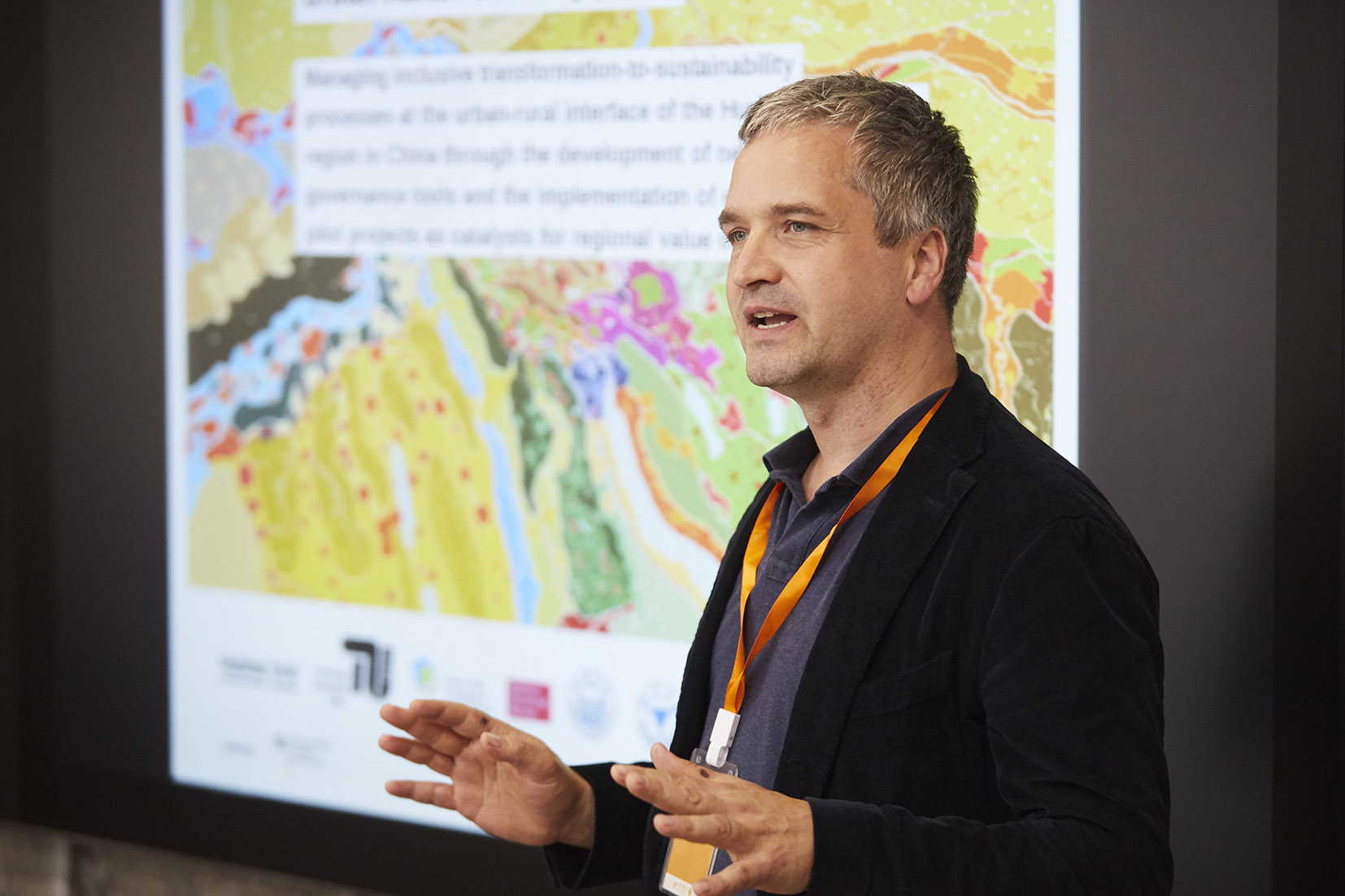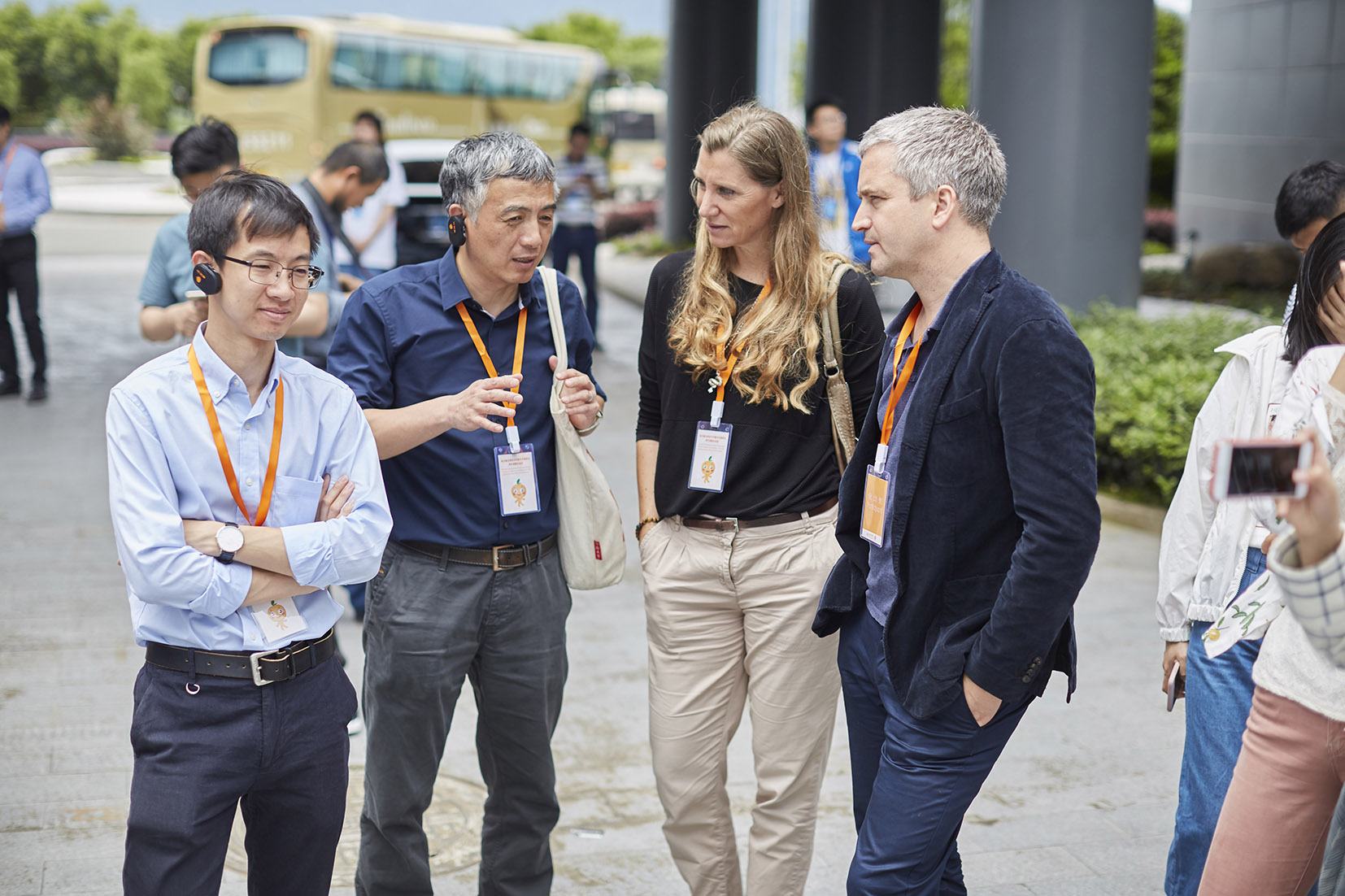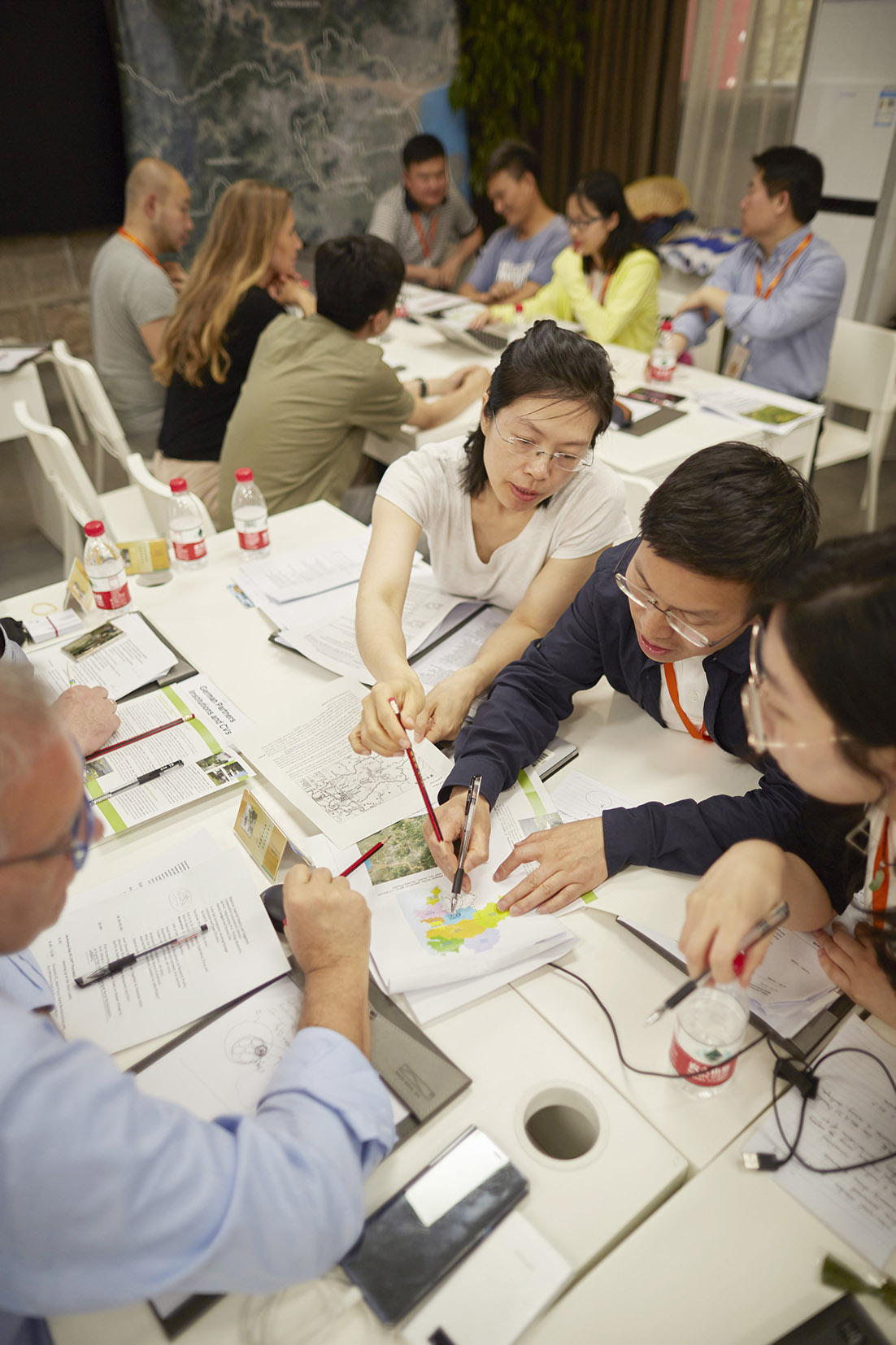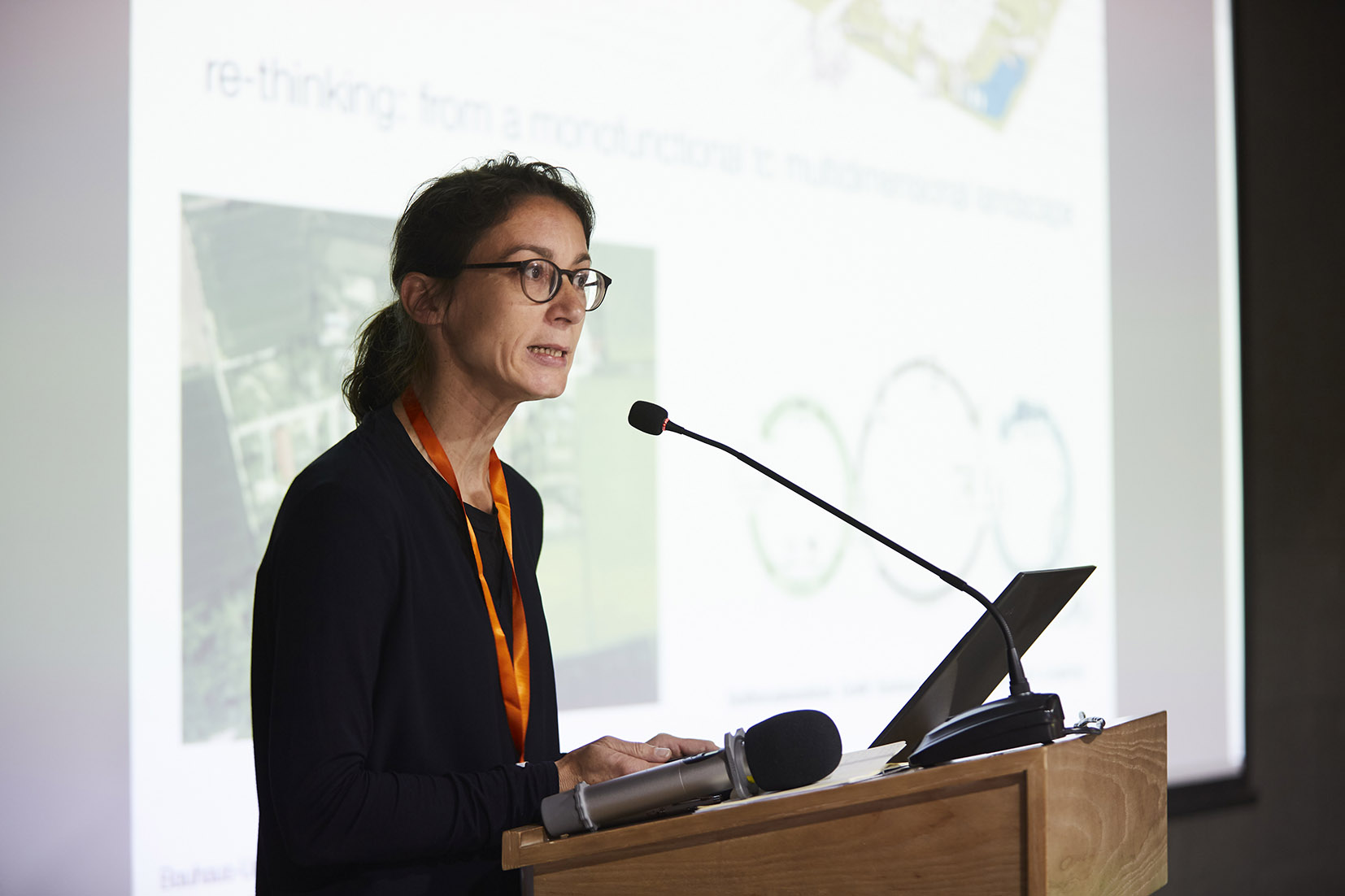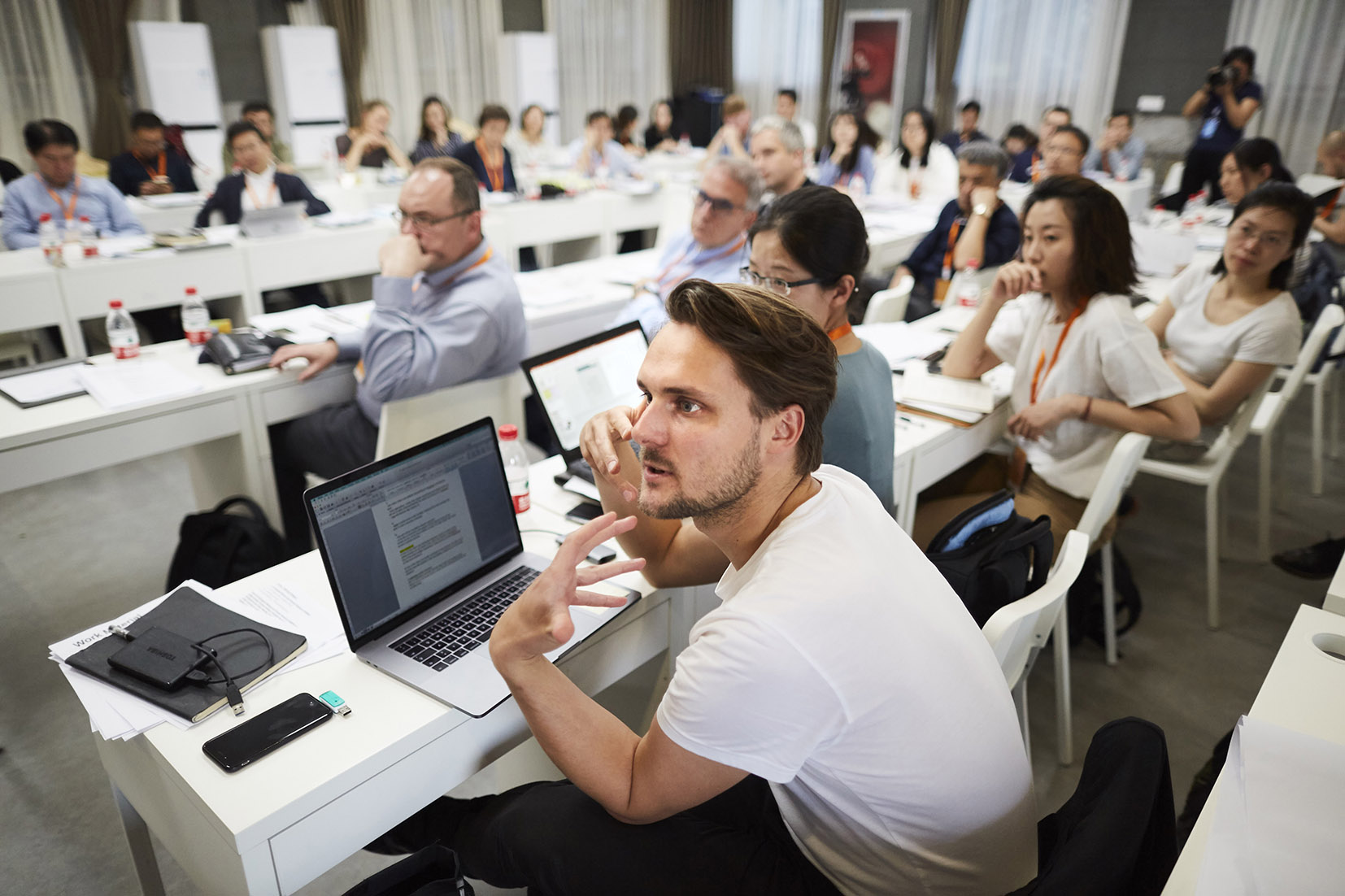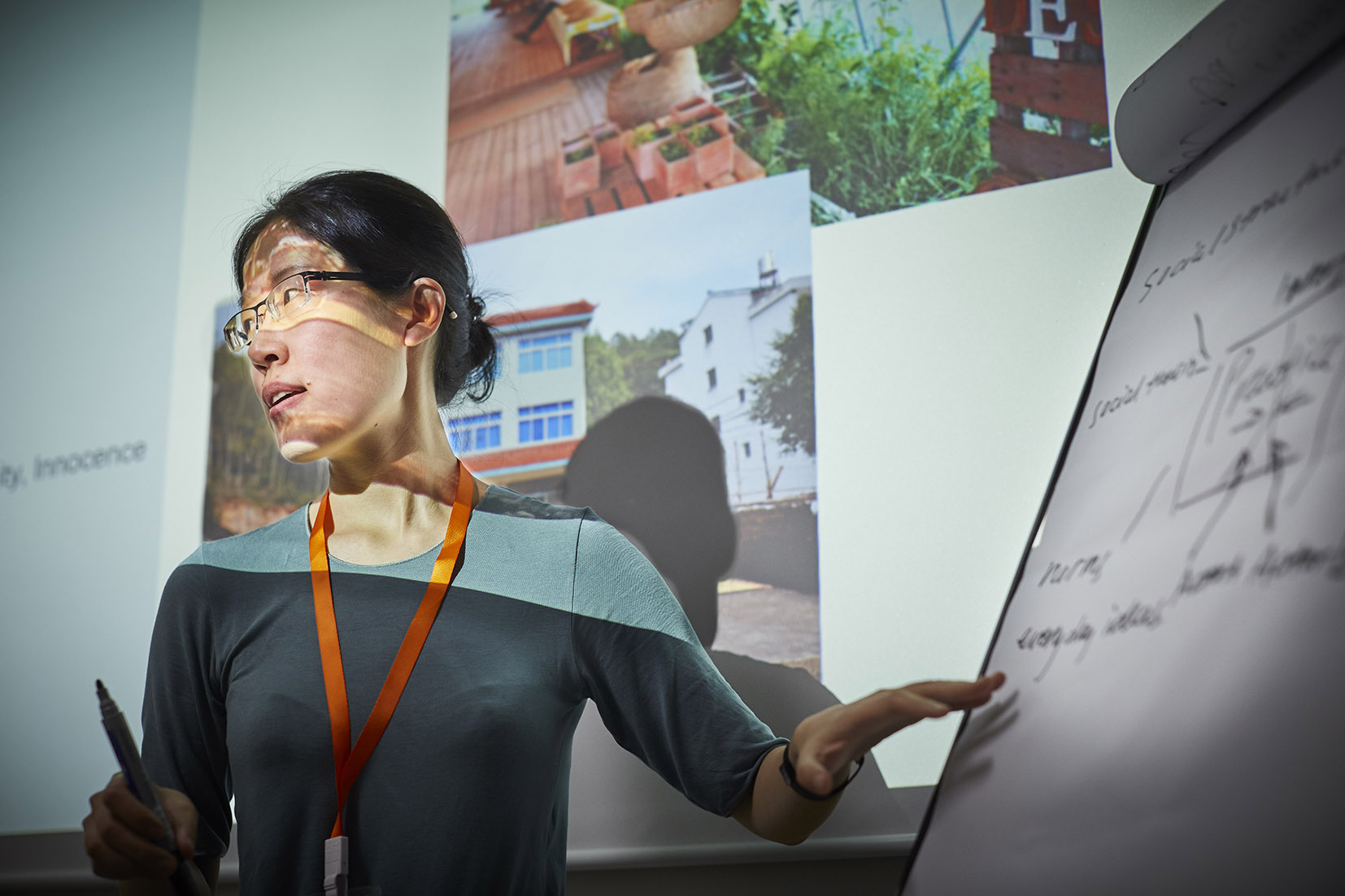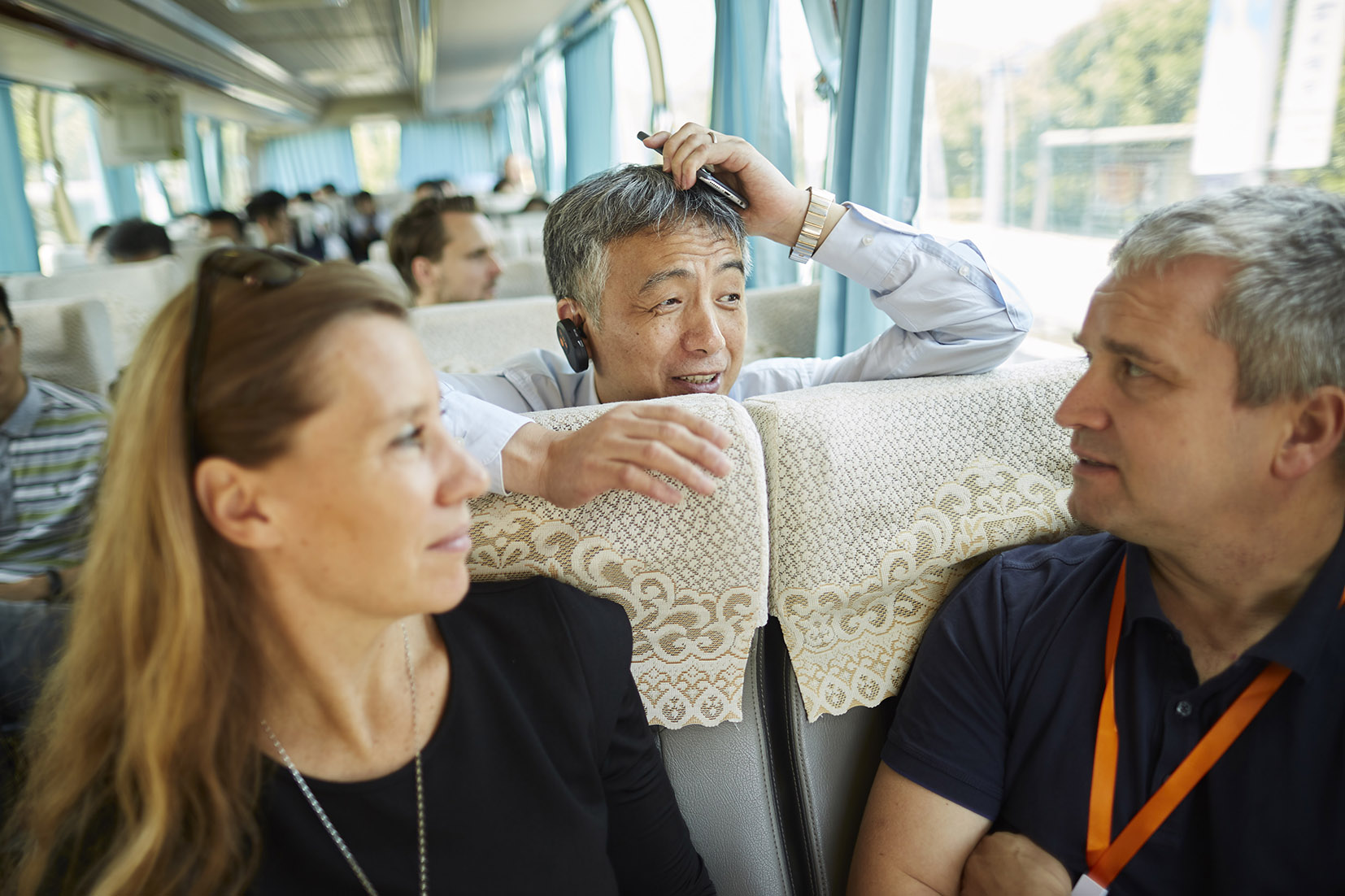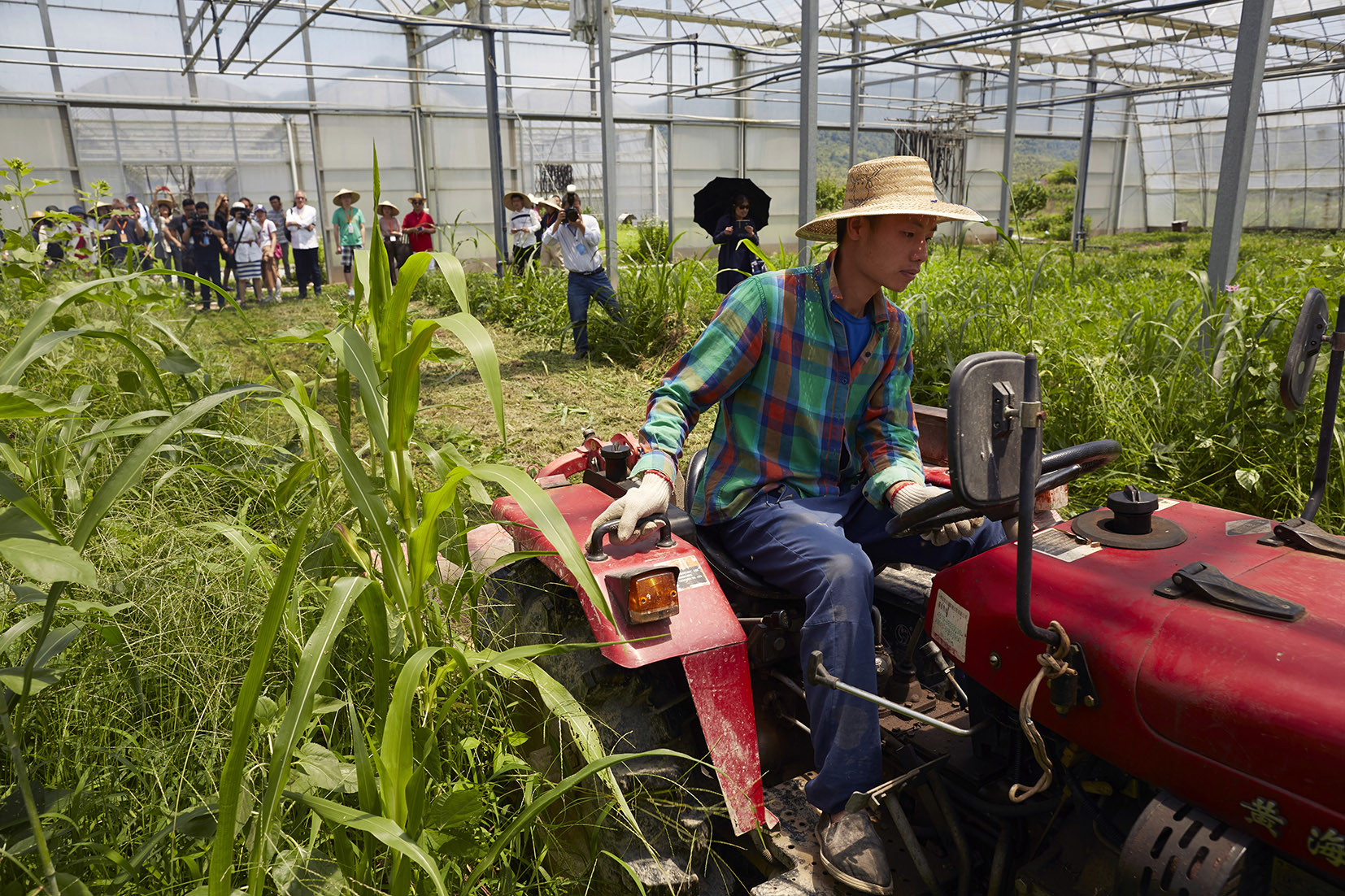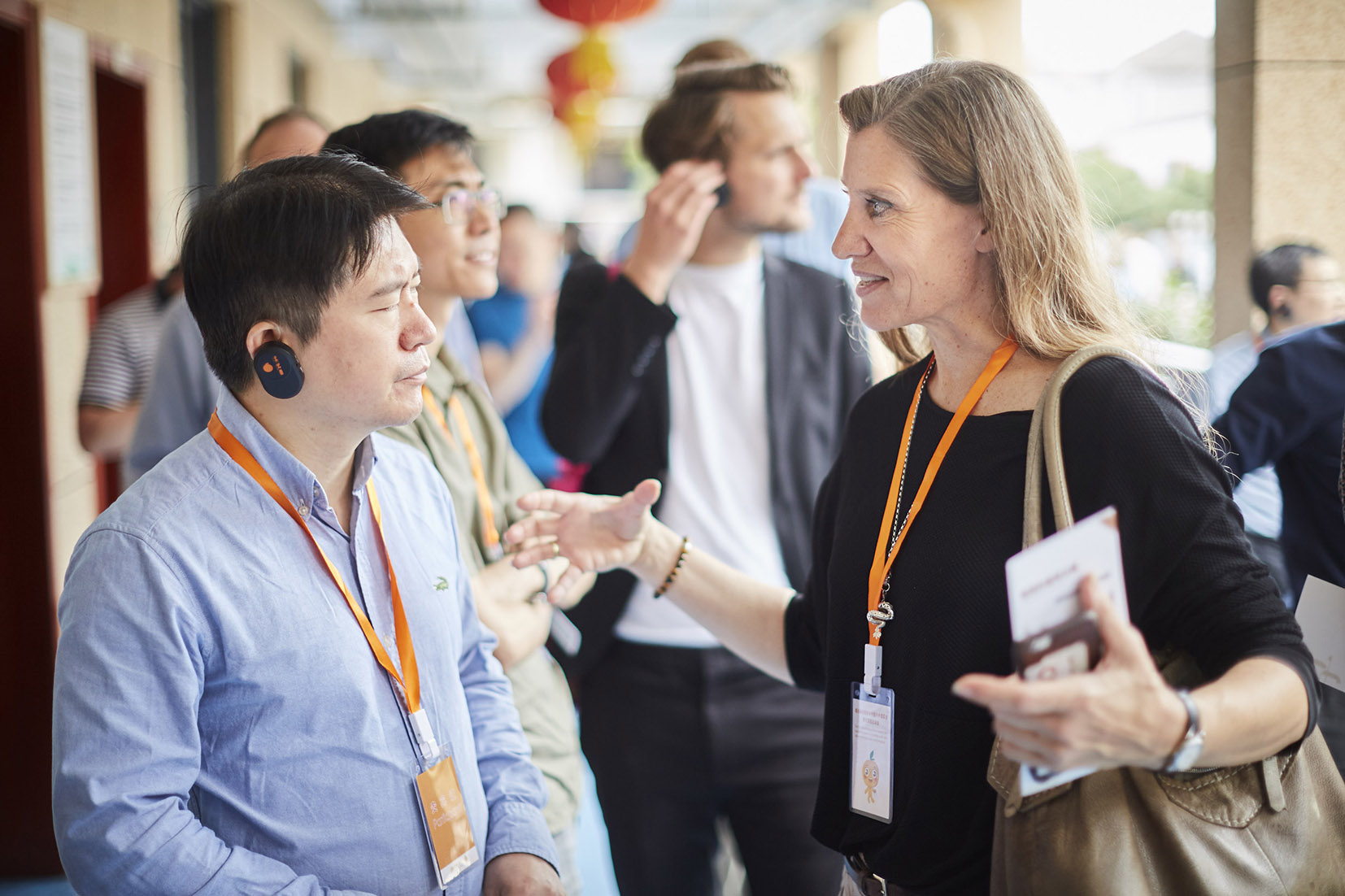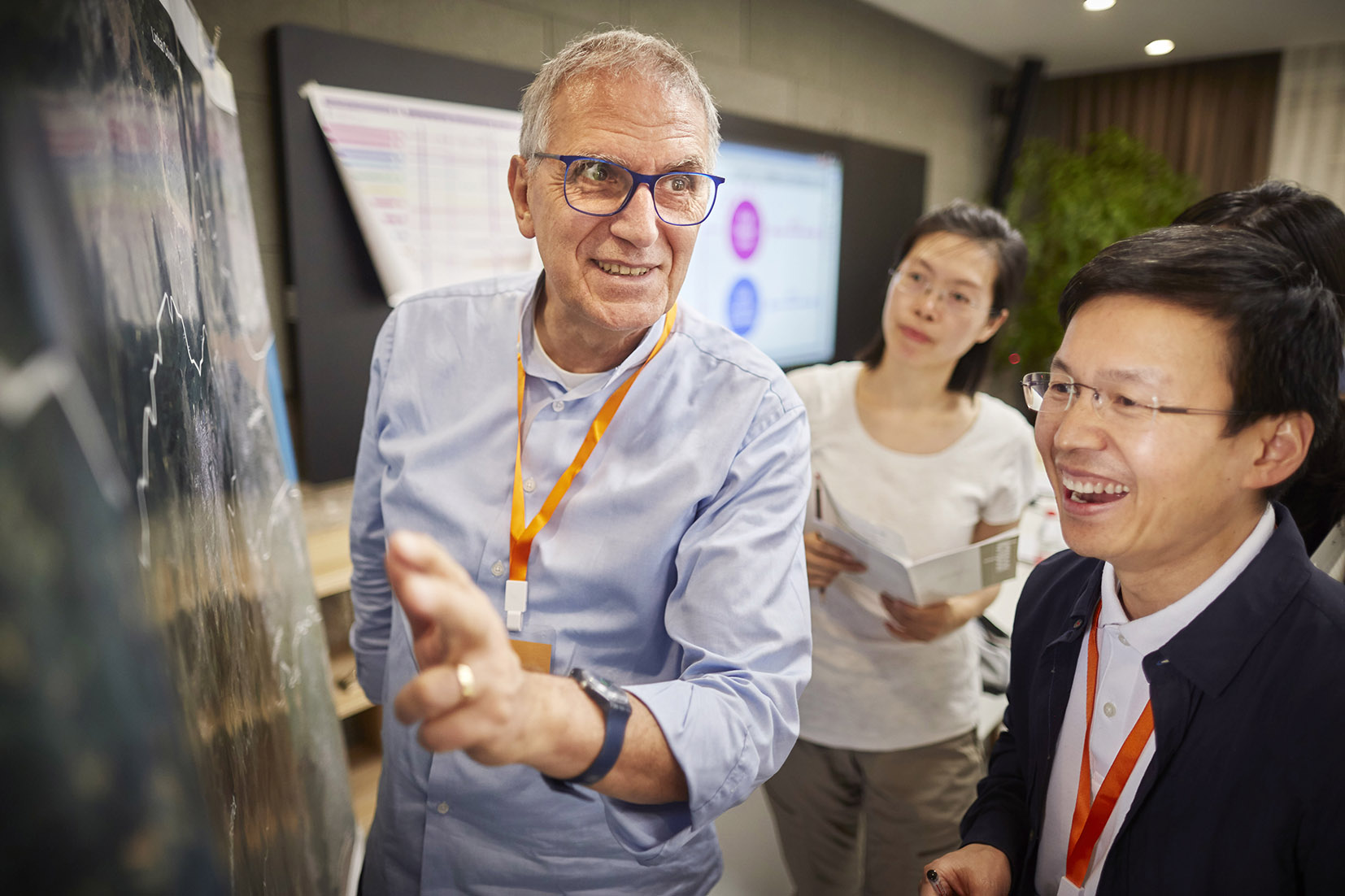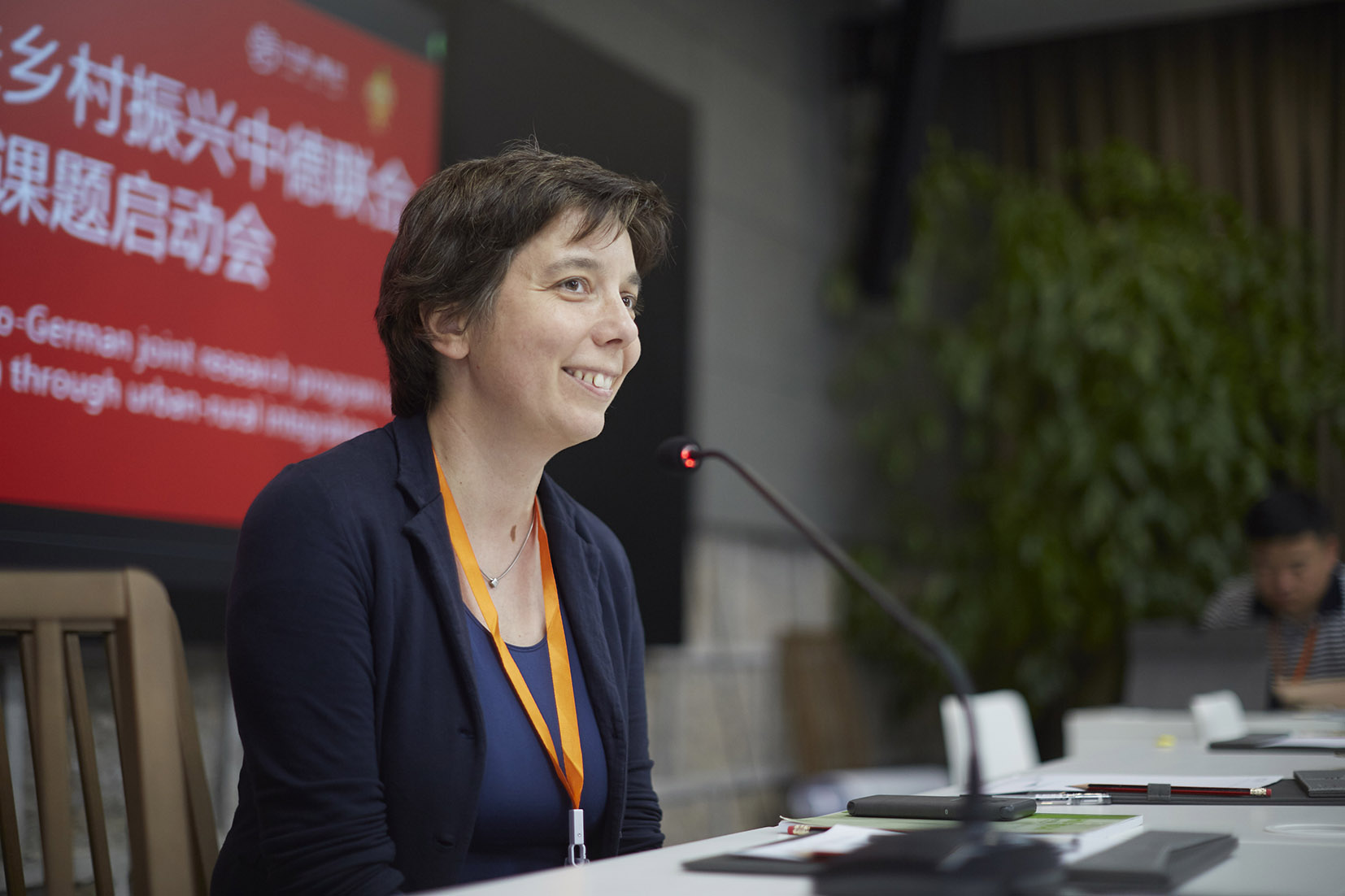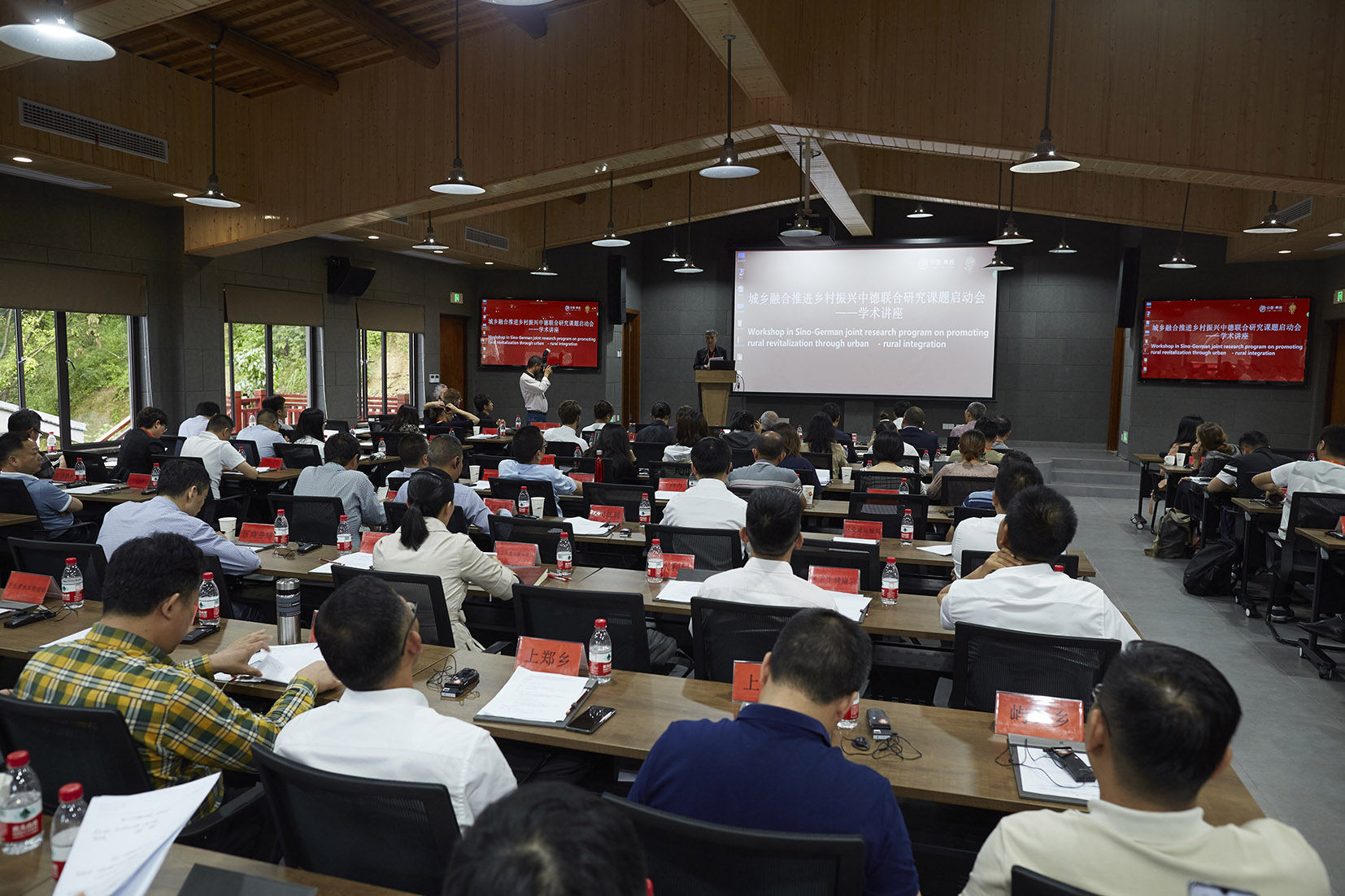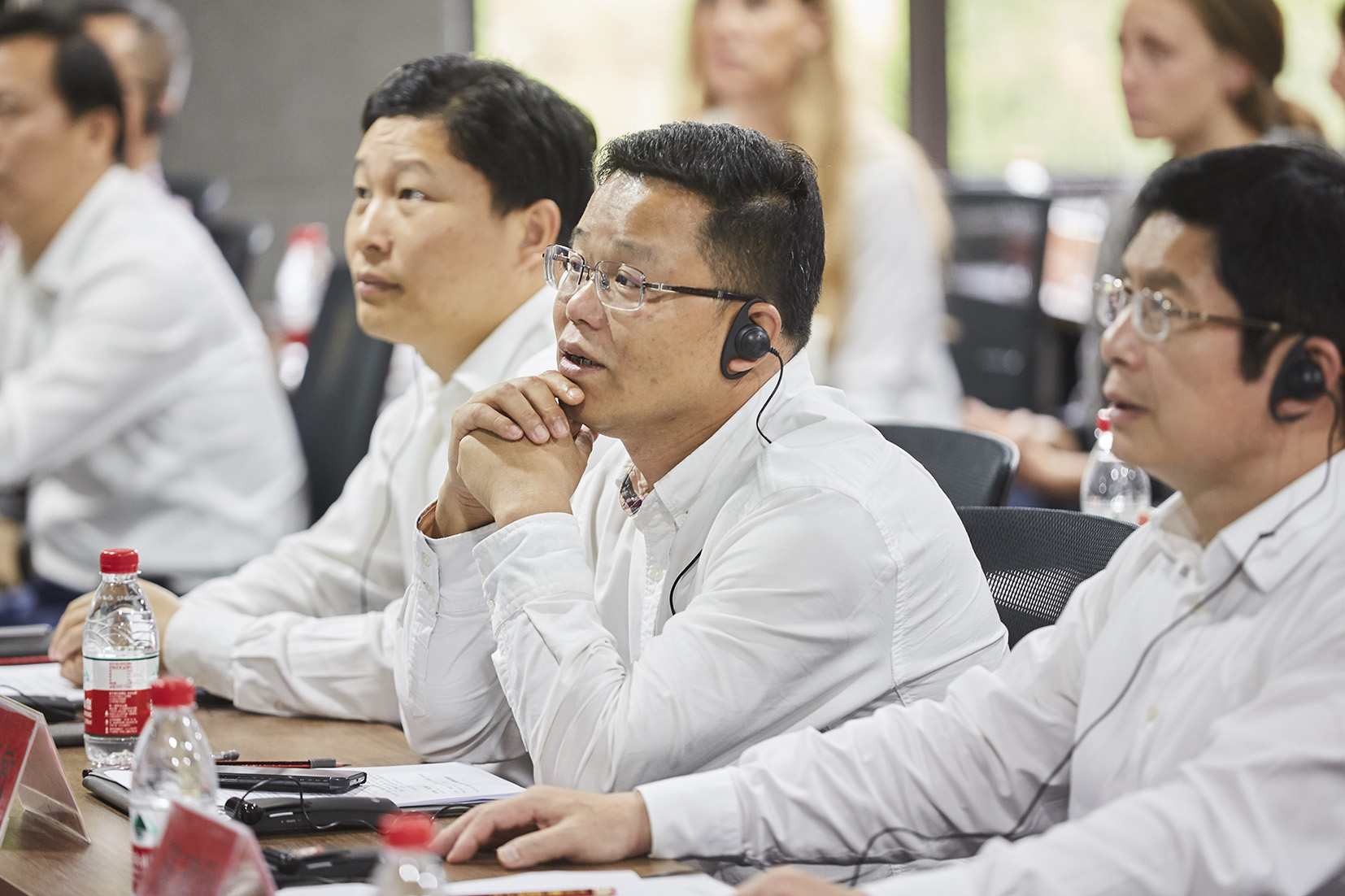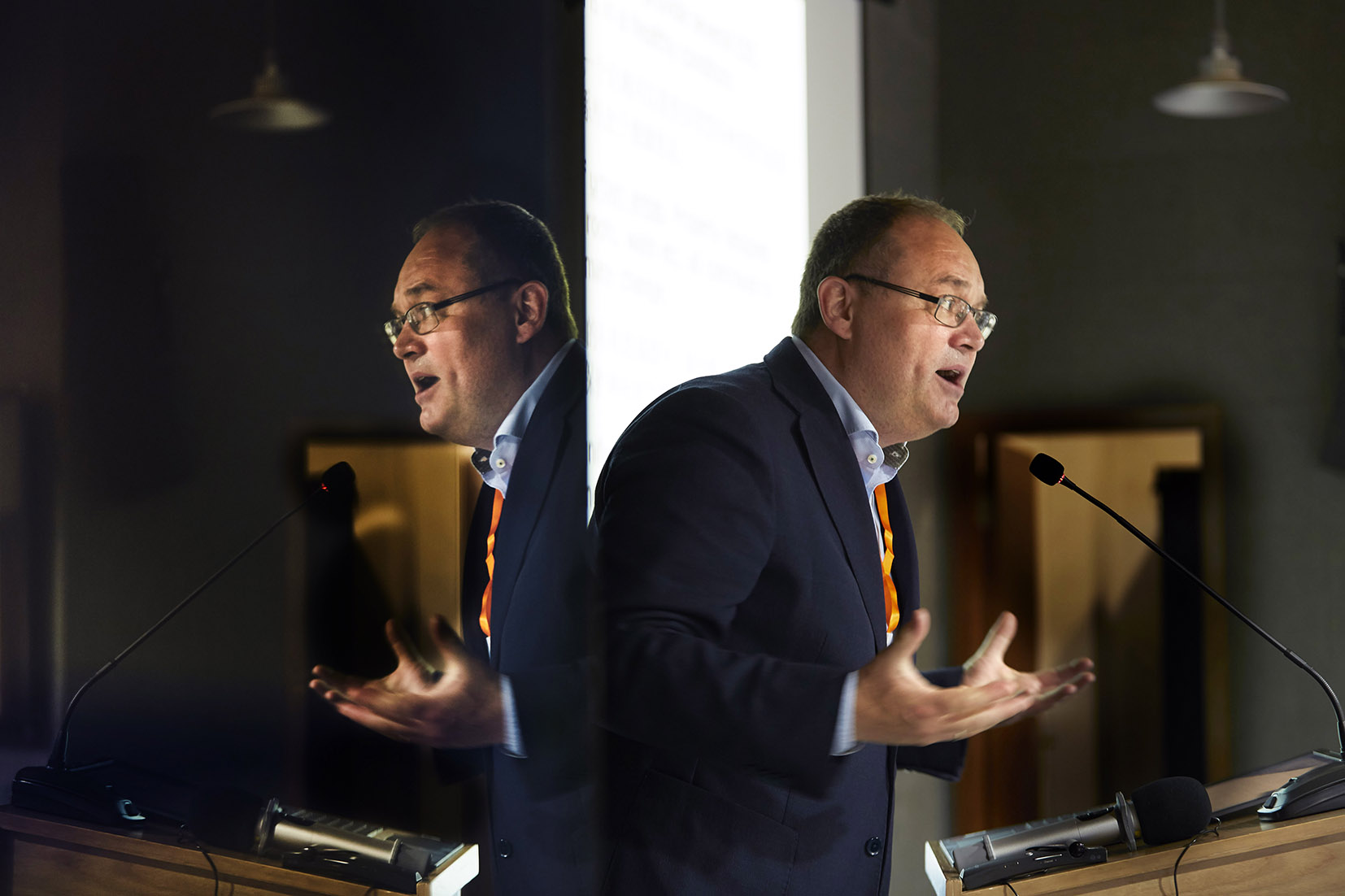BMBF, 2019 - 2024
Prof. Anke Hagemann, Lukas Pappert, Dr. Li Fan, Gaoli Xiao
Urban-Rural Assembly (URA):
Managing inclusive transformation-to-sustainability processes at the urban-rural interface of the Huangyan-Taizhou region in China
The joint research project ‘Urban-Rural Assembly (URA)’ aims to build a better understanding of the ambiguous urban-rural constellations and interdependencies that are emerging along China’s vast urbanisation corridors, and which can no longer be described through traditional binaries of ‘urban’ and ‘rural’. The region Huangyan-Taizhou, part of the Chinese ‘prefectural-level city‘ Taizhou, will be examined as an exemplary case study and learning context: a rapidly urbanising region where diverse and seemingly contradictory transformation processes take place simultaneously in close proximity, producing multiple dimensions of urban-rural interrelations.
Through a trans- and inter-disciplinary as well as multi-scalar research design the team will build a substantive knowledge on (1) the social, ecological, economic and cultural sustainability challenges at urban-rural interfaces and current gaps in policy design and planning governance; (2) on how cyclical, community-driven urban-rural economies can act as catalysts in local transformation-to-sustainability processes (tested in ‘Local Transformation Laboratories – Reallaboren’; (3) on how learnings from implementations can be up-scaled to inform new strategic policy instruments for governing the urban-rural interface and help to set incentives or local innovations.
Through the development of transferable strategic instruments (in part already tested in Germany such as Raumbild-approaches), enabling tools and guidelines, the project seeks to foster knowledge dissemination and transfer across the coastal urbanisation corridor - contributing to the urgent need for creative approaches towards localisation and implementation of the SDGs and the New Urban Agenda in China and beyond.
All images copyright 2019 Jörg Gläscher / TU Berlin
Drawing on a systemic approach of transformation science and transition research URA aims to contribute to a specific transformation-to-sustainability process: to address the problematic polarisation between urban growth areas and their formerly rural hinterlands by strengthening urban-rural linkages. Few research projects so far have build substantive evidence-based knowledge on the complexity of today’s urban-rural interrelations in China. By addressing this knowledge gap the project aims to provide so far missing conceptual tools to understand current trends and to develop innovative policy instruments that can help to guide urban-rural linkages towards sustainability. Beyond that, building upon the hypothesis that local social and economic innovations can become catalysts in broader change processes, URA aims to implement concrete interventions within ‘Local Transformation Laboratories – Reallabore’ to complement policy design by testing how integrated thinking around the nexus of cultural heritage, renewable resources, and food security can lead to concrete community-driven pilot interventions which explore the potential of urban-rural linkages.
Project Website: www.urbanruralassembly.com
The project ‘Urban-Rural Assembly (URA)’ is sponsored by the German Federal Ministry of Education and Research (BMBF) as part of the FONA programme Sustainable Development of Urban Regions based on BMBF’s China Strategy. An initial Definition Phase from 04/2019 to 09/2020 will be followed by the Research and Development Phase from 10/2020 to 09/2024.

The Sino-German collaboration in the joint research project Urban-Rural Assembly (URA) has been officially started in the framework of a kick-off workshop week taking place in Huangyan-Taizhou region (Zhejiang Province) from May 27 to 31, 2019.
Throughout the workshop week the 30 Sino-German researchers were involved in several working sessions and networking events as well as a wide range of field visits of e.g. urbanised villages, technology parks, social welfare institutions and eco-agricultural projects.
Besides that the exchange together with representatives of the local government Huangyan-Taizhou was a main focus of the workshop which closed with an international conference at the Tongji-Huangyan Rural Revitalization Academy in Shatan Village, Huangyan District. The kick-off was co-organised together with Prof. Dr. YANG Guiqing from the College of Architecture and Urban Planning (CAUP) at Tongji University Shanghai.
All images copyright 2019 Jörg Gläscher / TU Berlin
German Partner Institutions
-
Technische Universität Berlin, Habitat Unit, Department for International Urbanism and Design, Prof. Dr. Philipp Misselwitz (Project lead, WP 1, 2, 8, 9, 10)
-
Technische Universität Berlin; Department of Circular Economy and Recycling Technology, Prof. Dr. Vera Susanne Rotter (WP 2)
-
Technische Universität Berlin, Center for Cultural Studies on Science and Technology in China (CCST), Dr. Sigrun Abels (WP 6, 10)
-
Bauhaus-Universität Weimar, Department for Landscape Architecture and Planning, Jun.-Prof. Dr. Sigrun Langner (WP 4, 9)
-
ICLEI – Local Governments for Sustainability e.V., World Secretariat Bonn, Roman Mendle (WP 7, 10)
Chinese Partner Institutions
- Tongji University Shanghai, CAUP - Department of Urban Planning, Prof. Dr. YANG Guiqing (WP 1, 2, 8, 9, 10)
- Zhejiang University, College of Environmental and Resource Sciences, Prof. Dr. Weixiang Wu (WP 3)
- Zhejiang University, Institute of Landscape Architecture, Dr. Yuting Xie (WP 4)
- Tongji University Shanghai, Center for Ecological Wisdom and Practice Research (CEWPR); Prof. Dr. YAN Wentao (WP 5)
- Shanghai University, Department of Architecture, Prof. Dr. LIU Yong (WP 6)
- ICLEI Local Governments for Sustainability, East Asia Secretariat, Xu Ji (WP 7, 10)
Download the URA Dossier here.
Prof. Anke Hagemann (Principal Investigator)
anke.hagemann@tu-berlin.de
Lukas Pappert (Senior Researcher)
lukas.pappert@tu-berlin.de
Li Fan (Project Coordinator)
fan@tu-berlin.de
Room A 410
T + 49 – 30 – 314 – 29177
F + 49 – 30 – 314 – 21907
